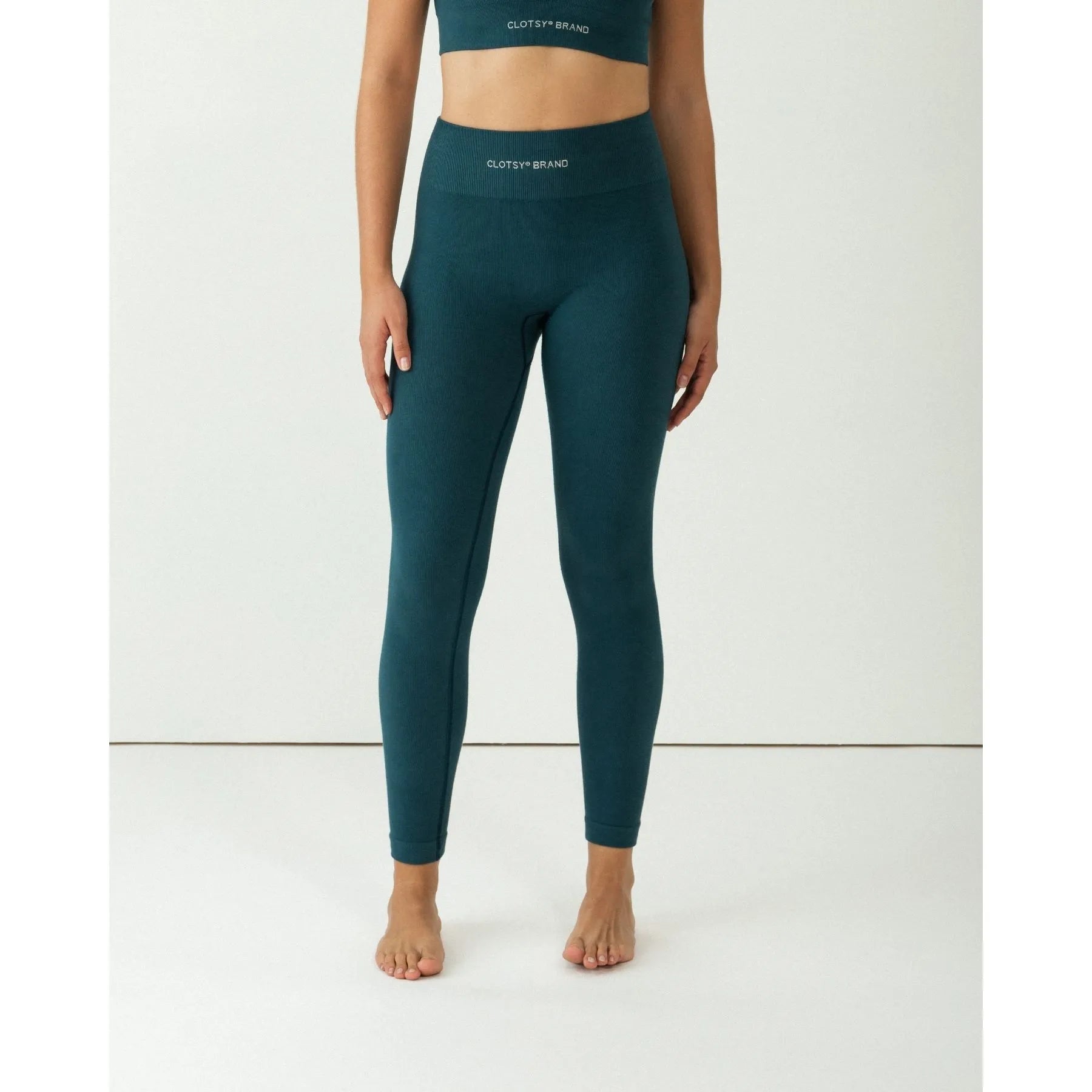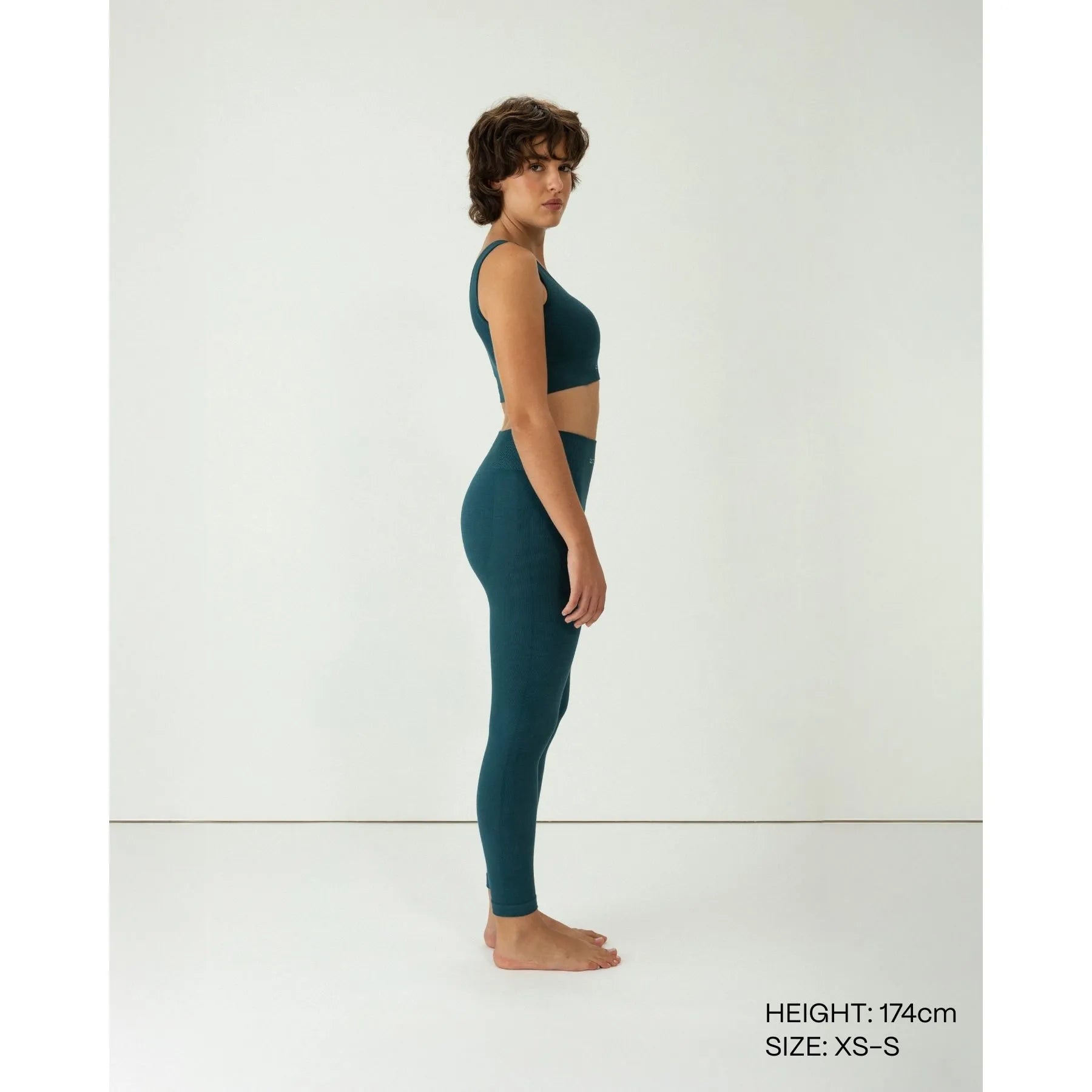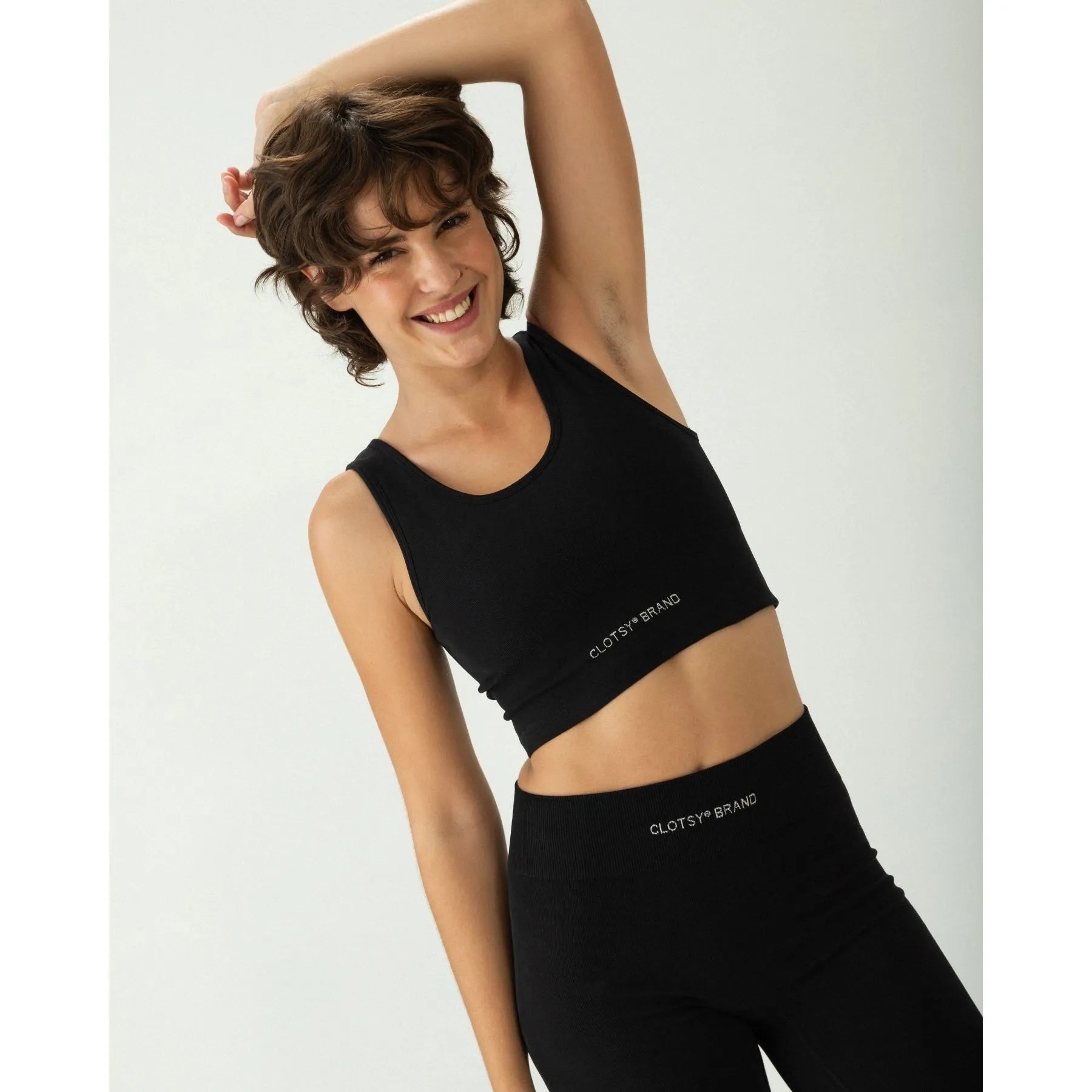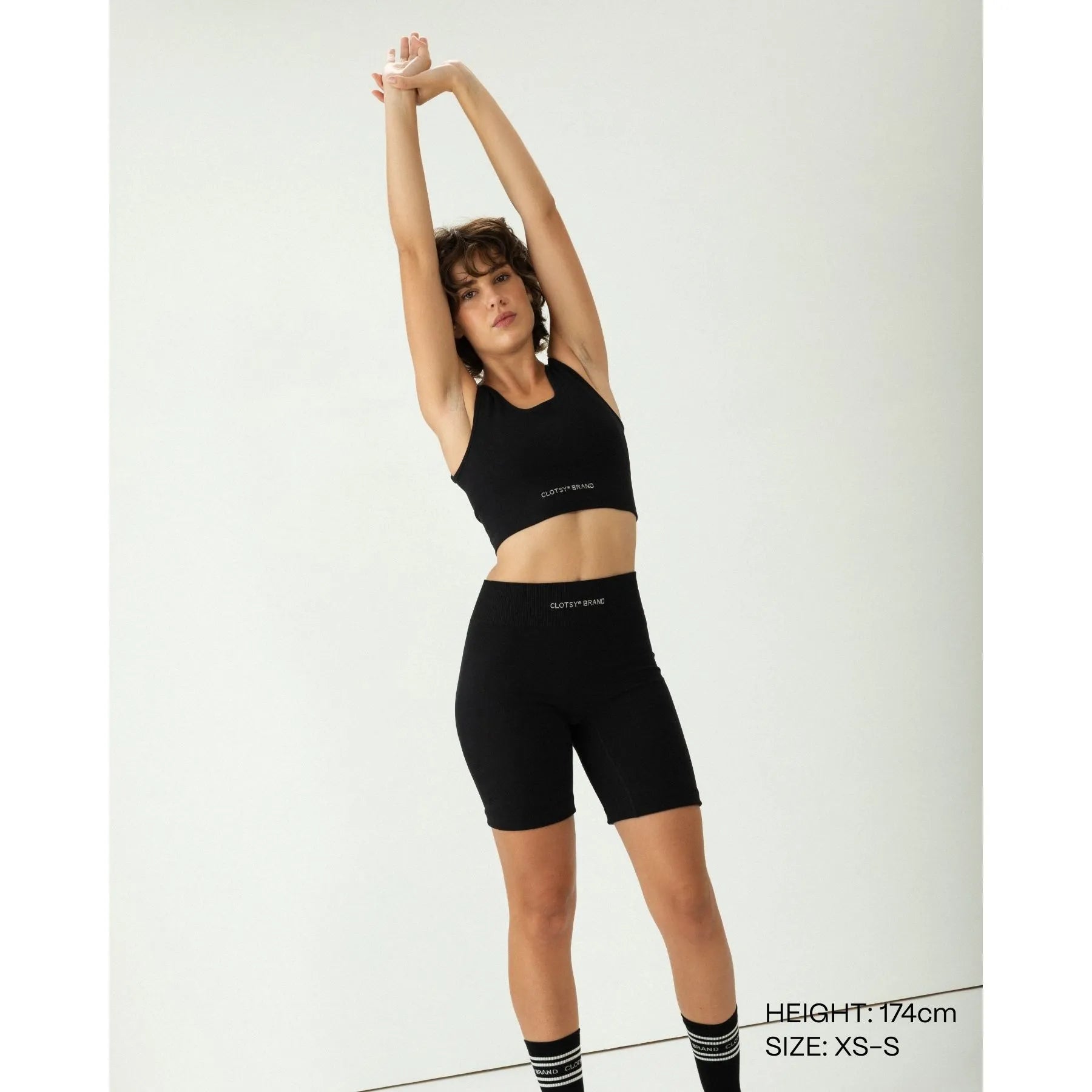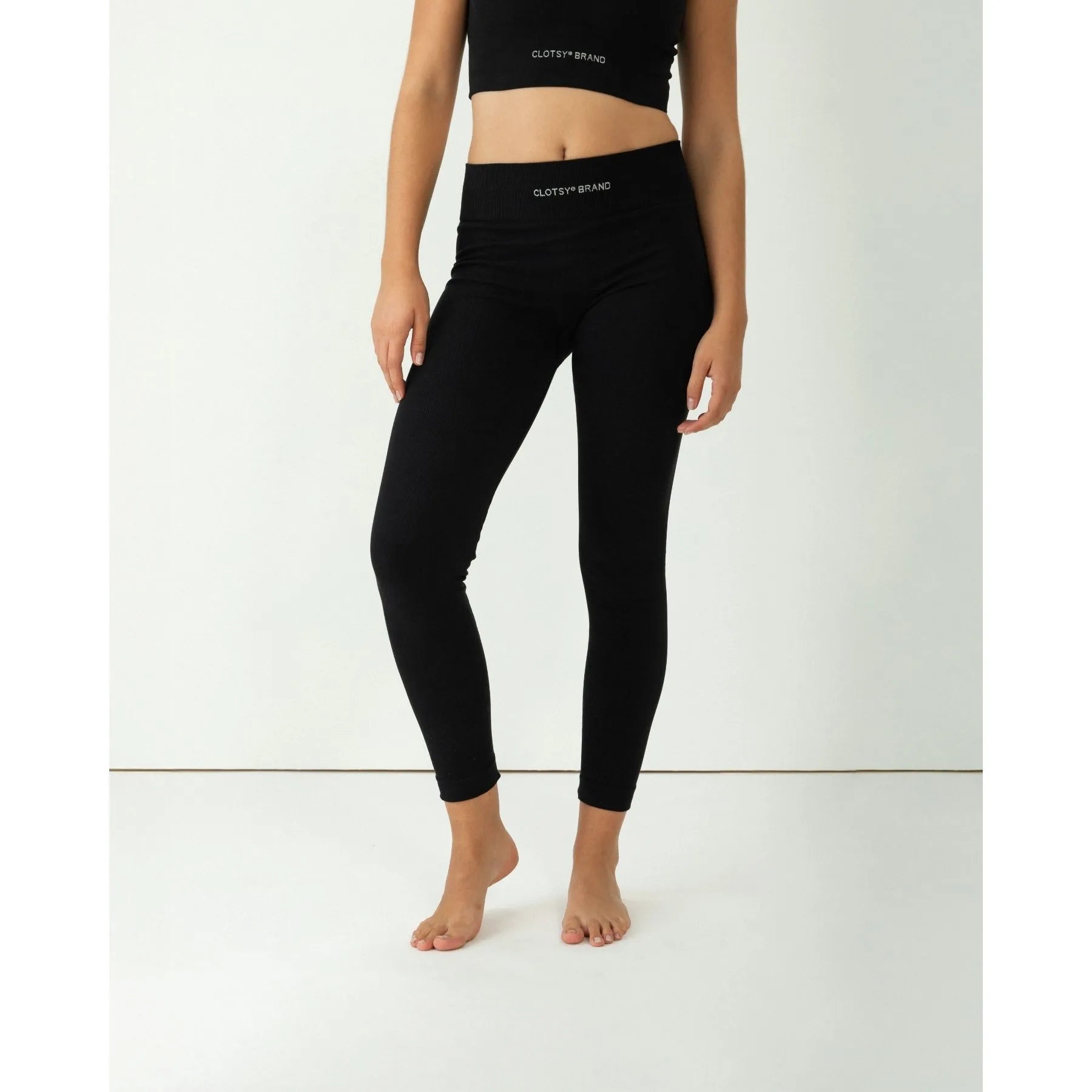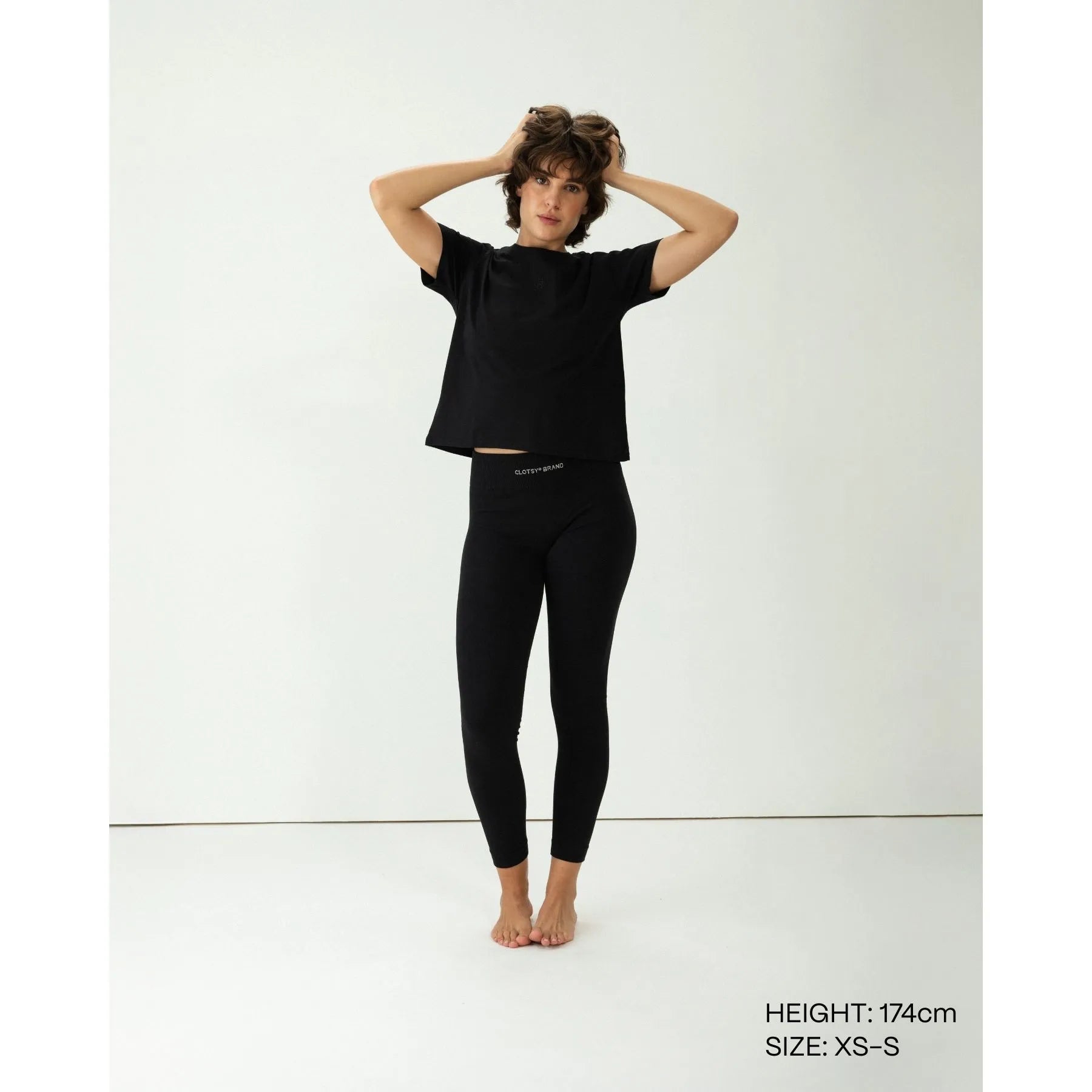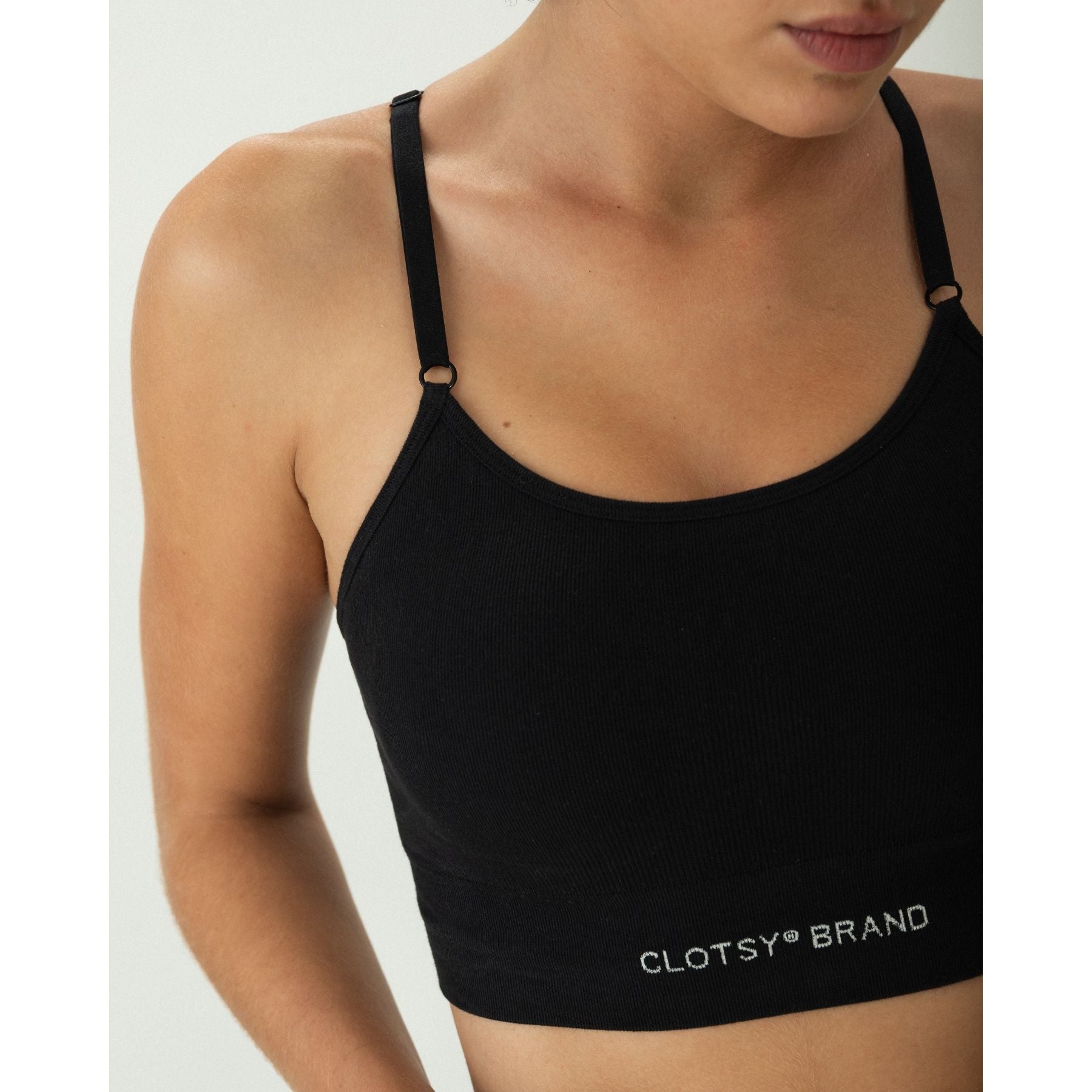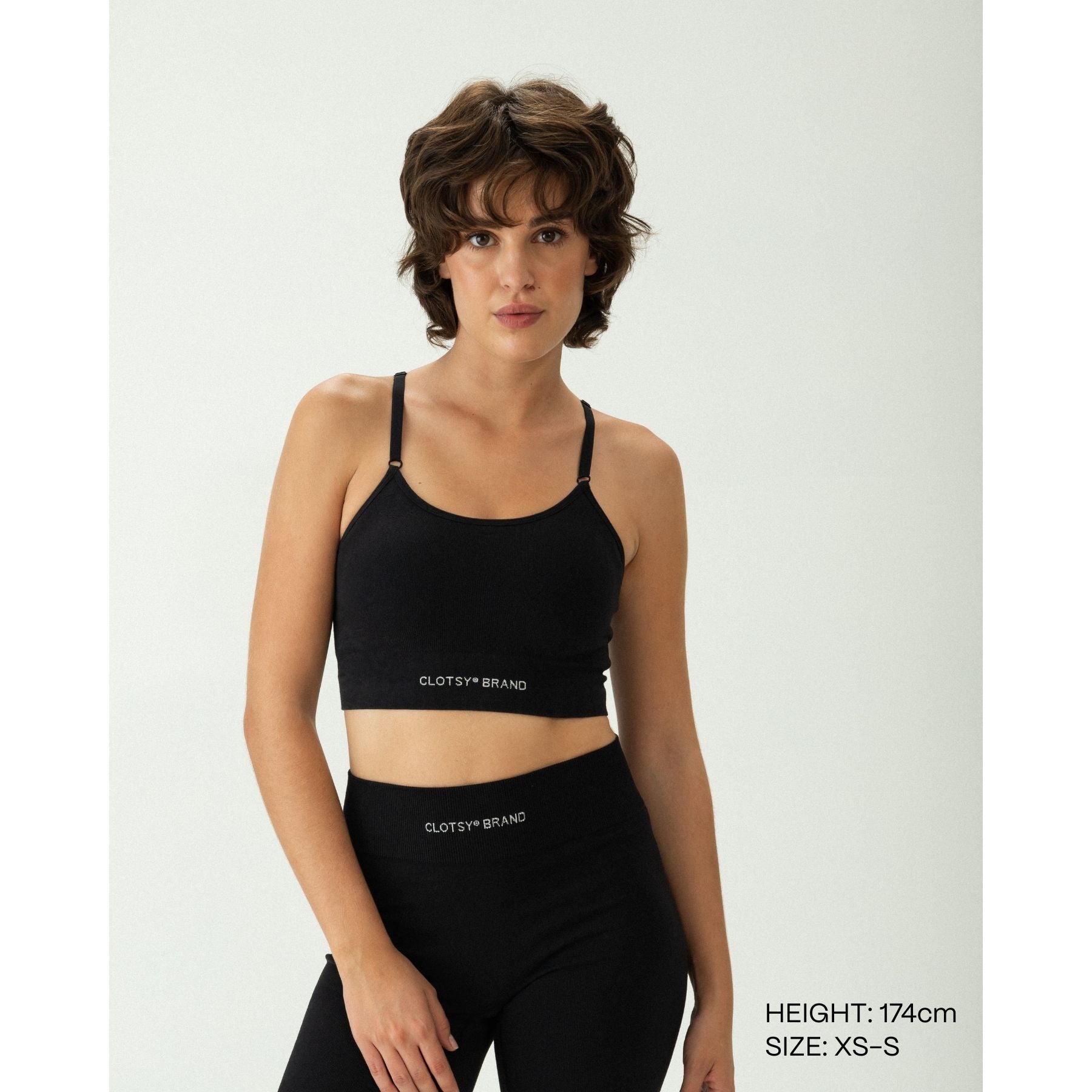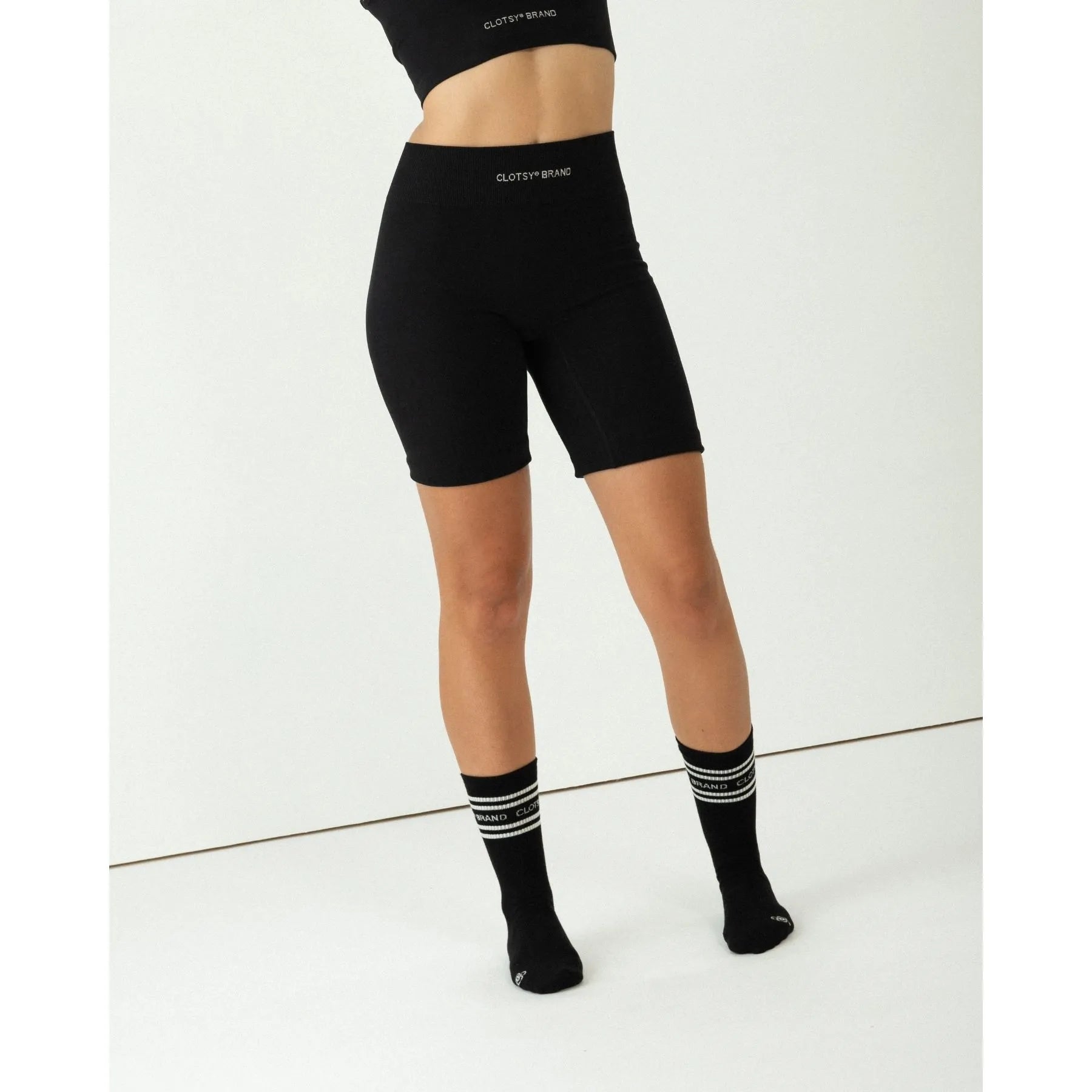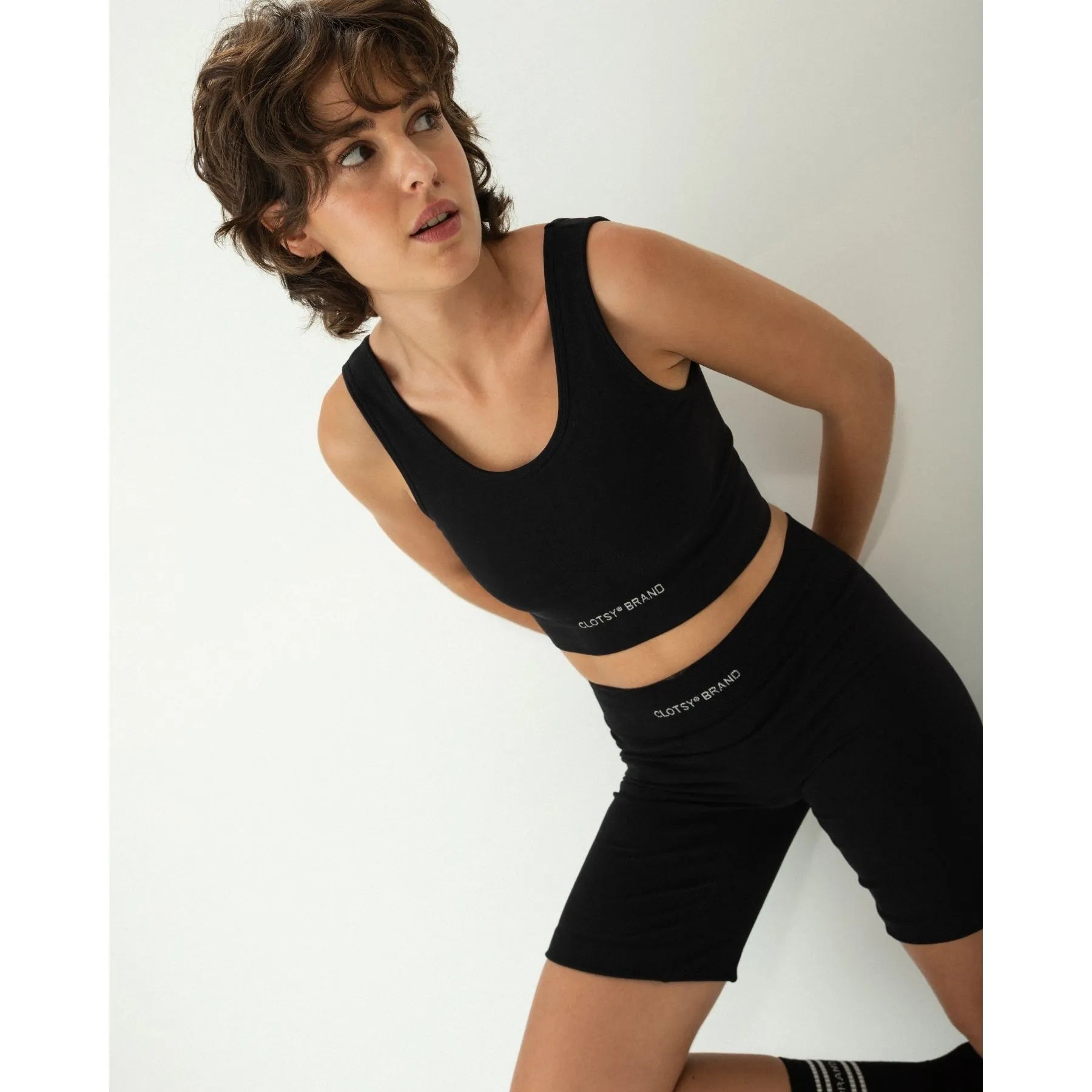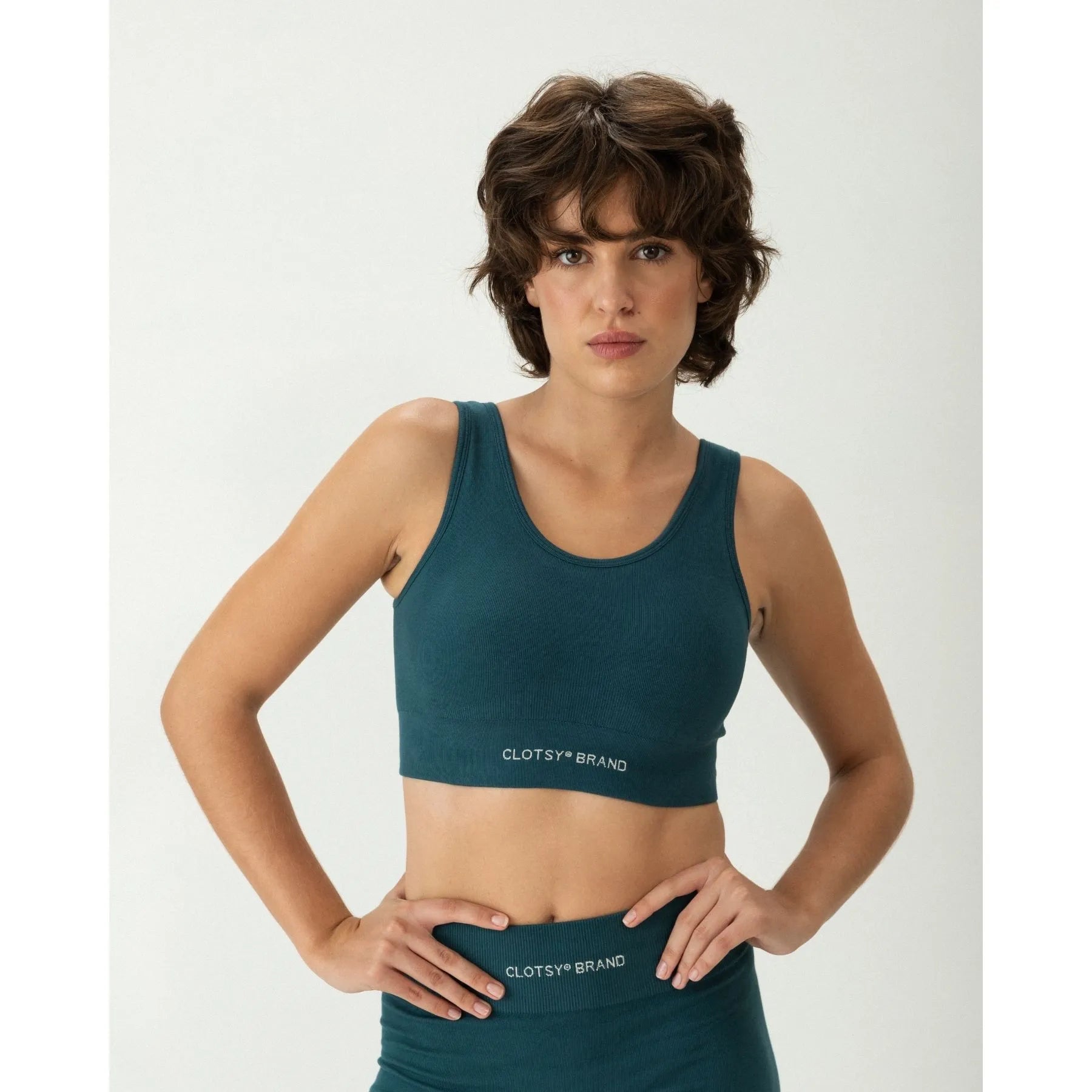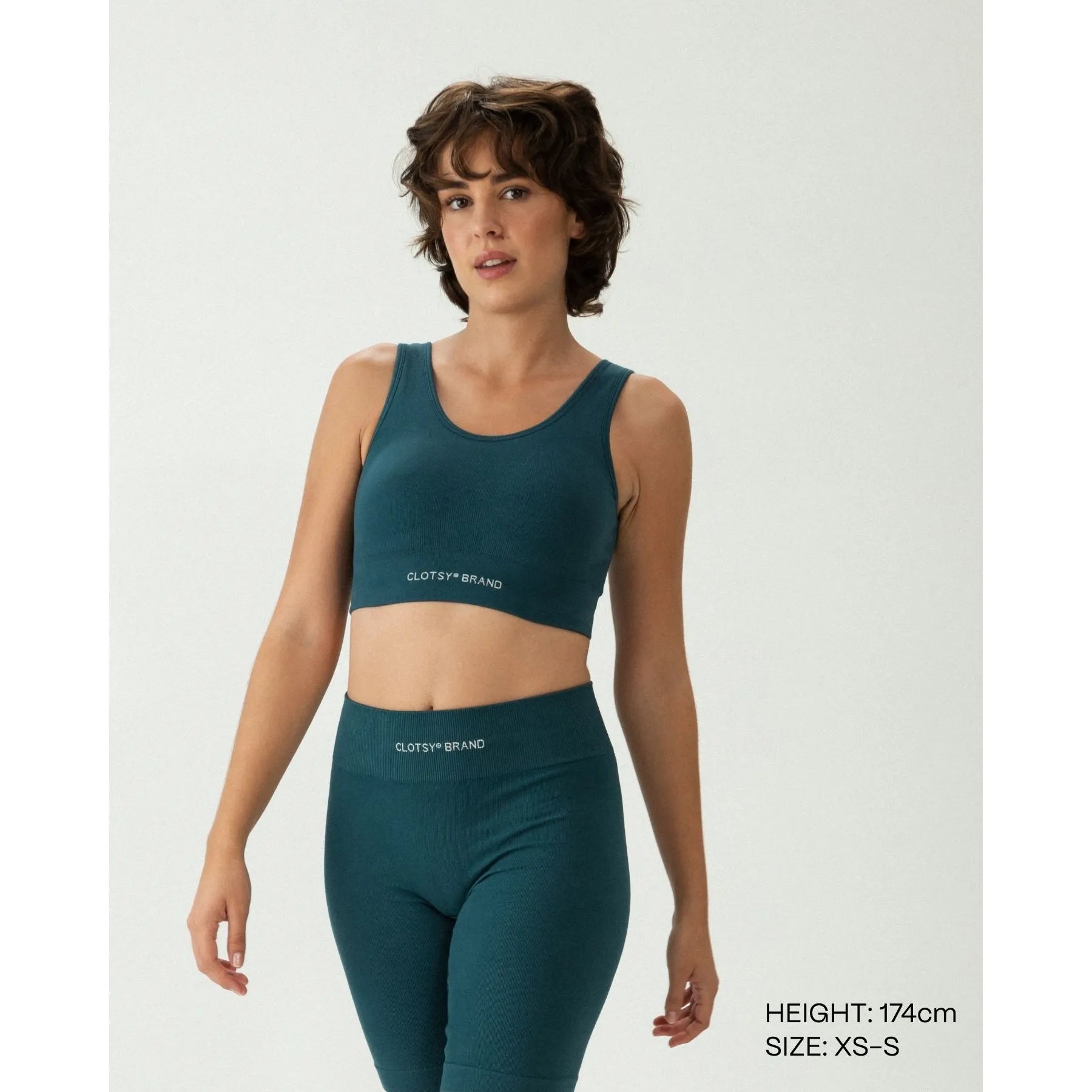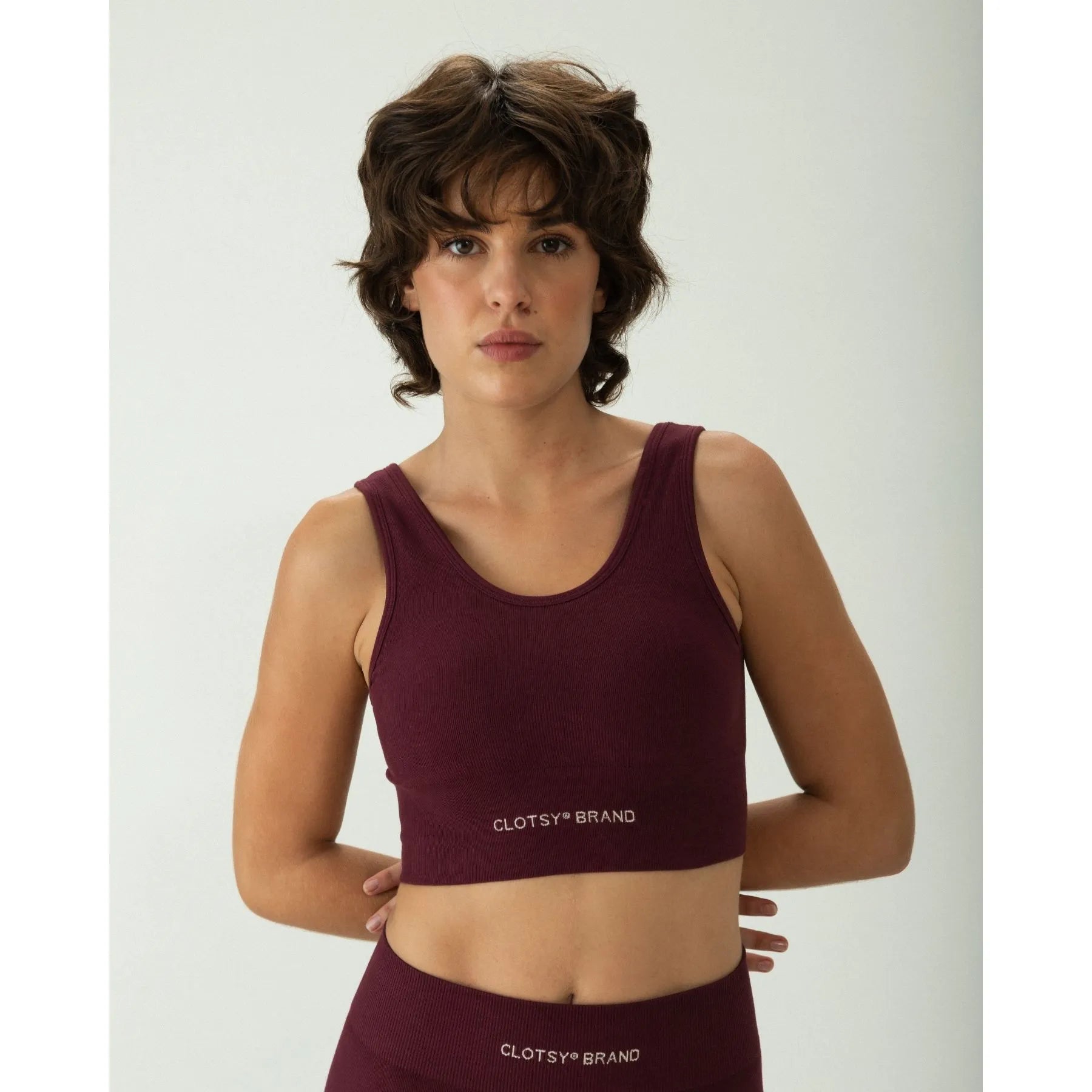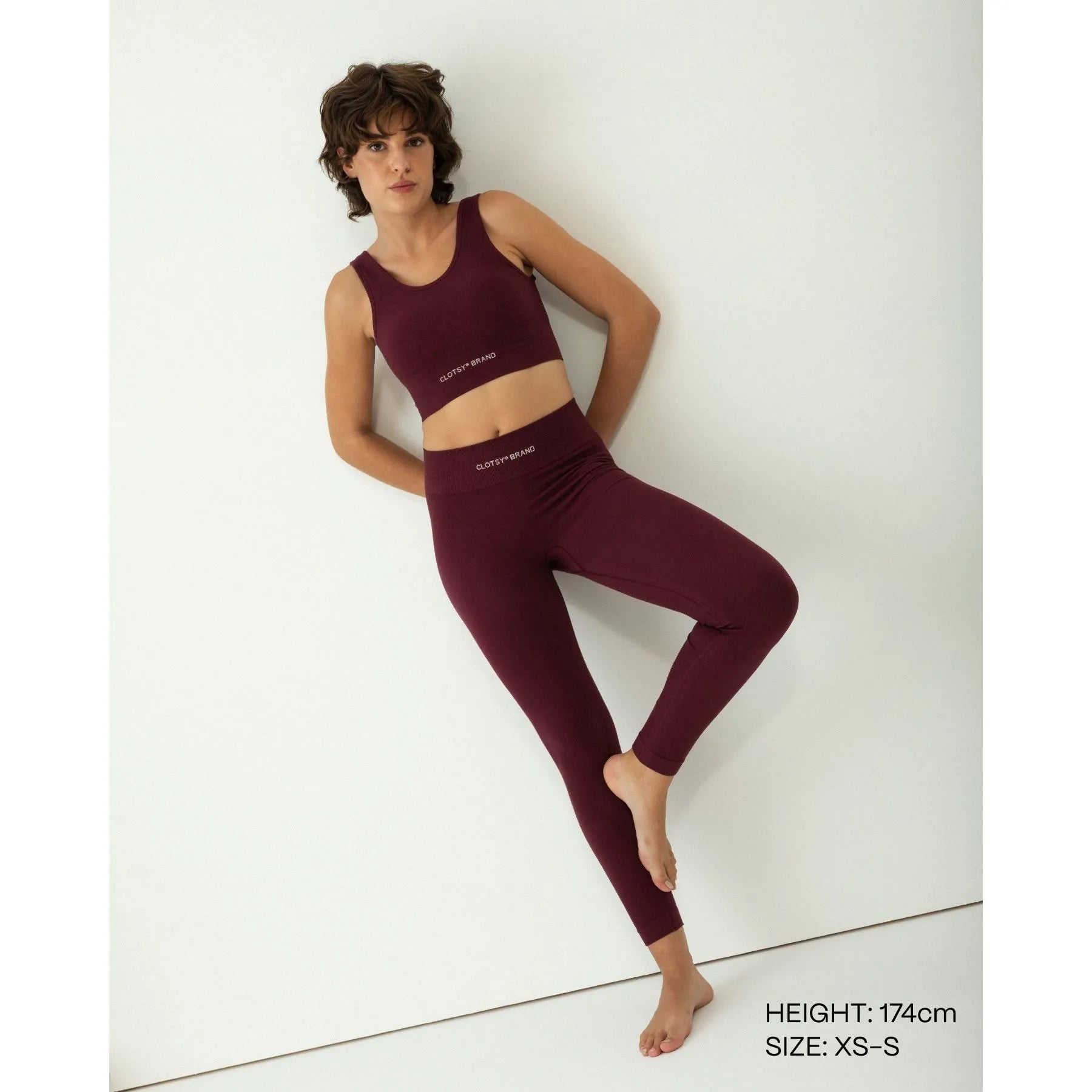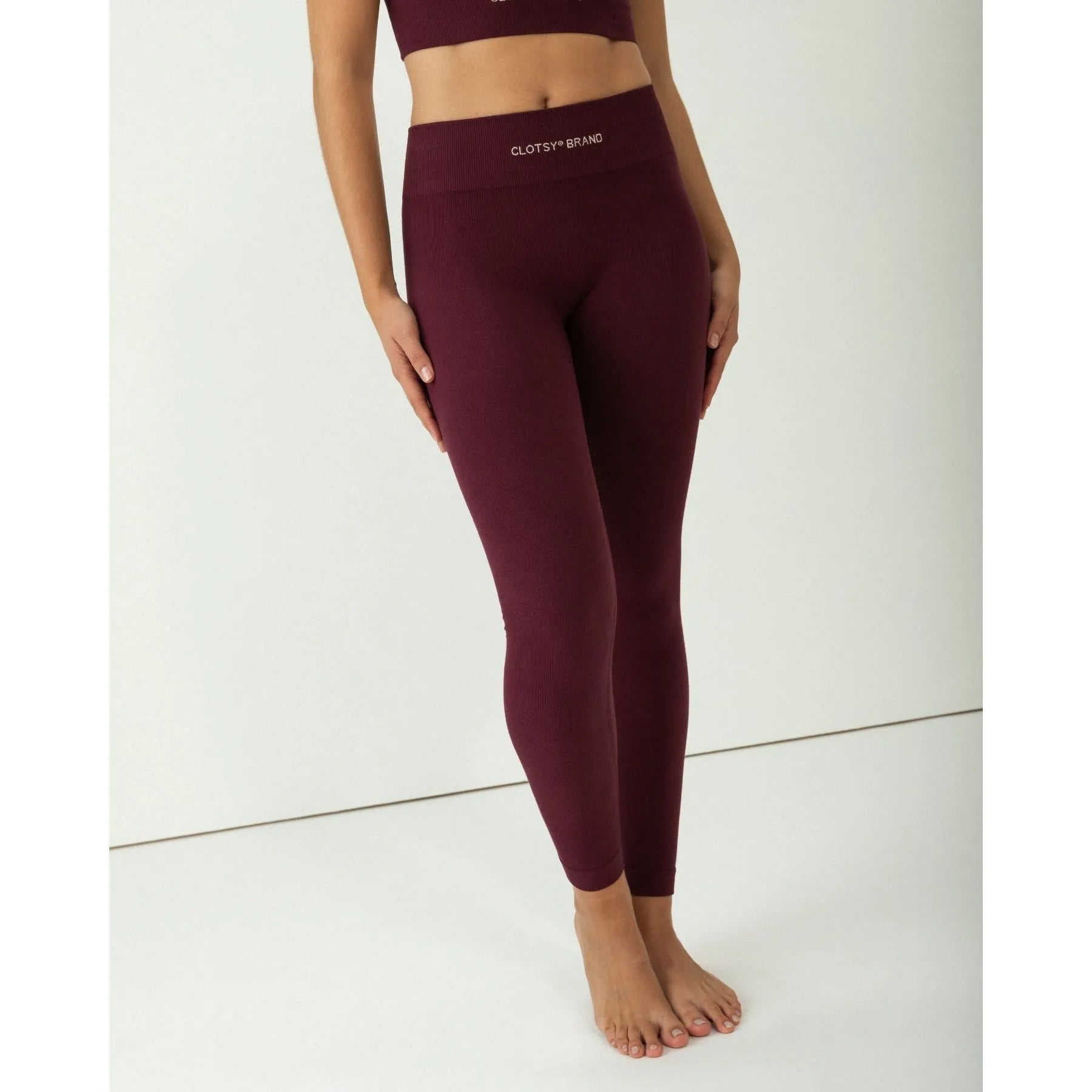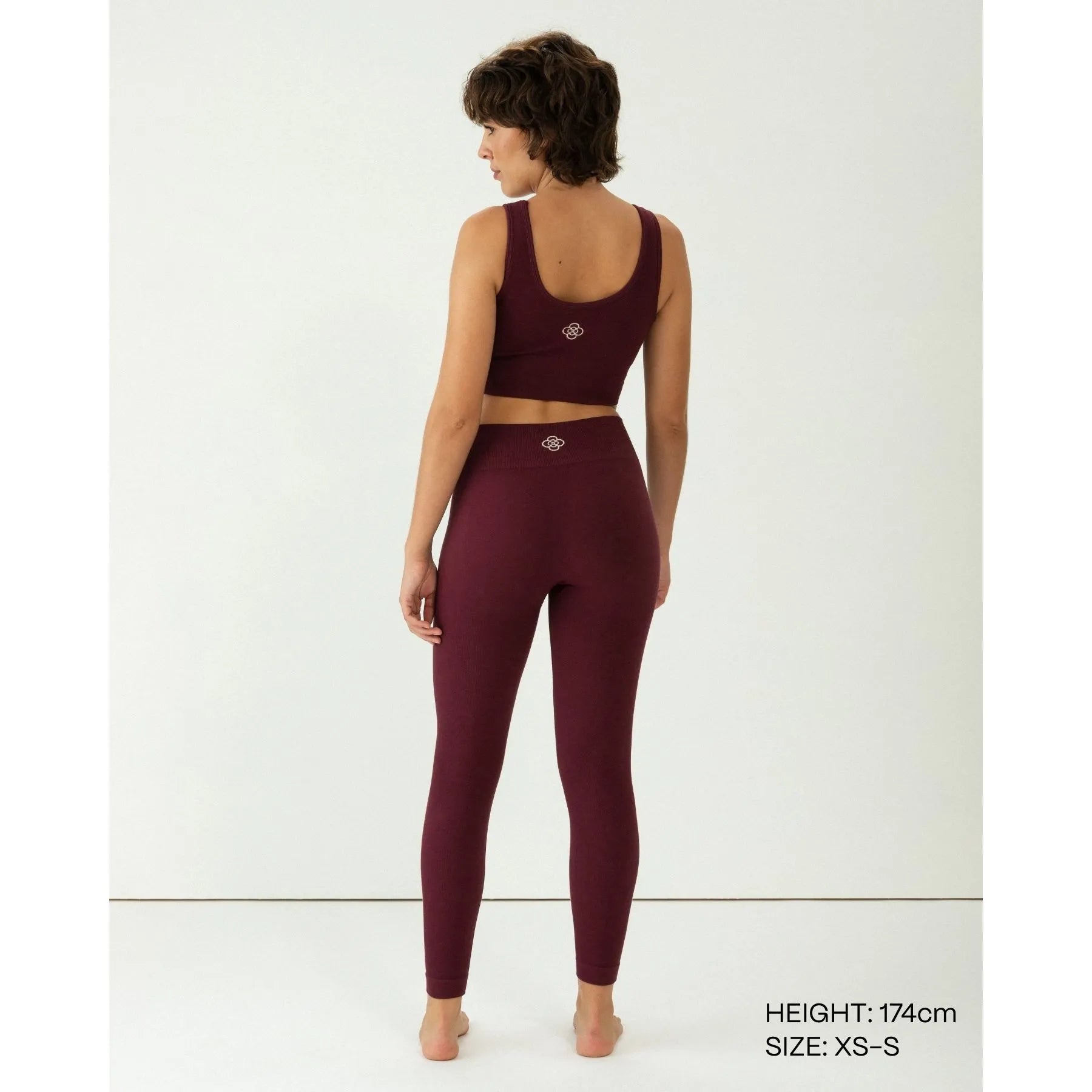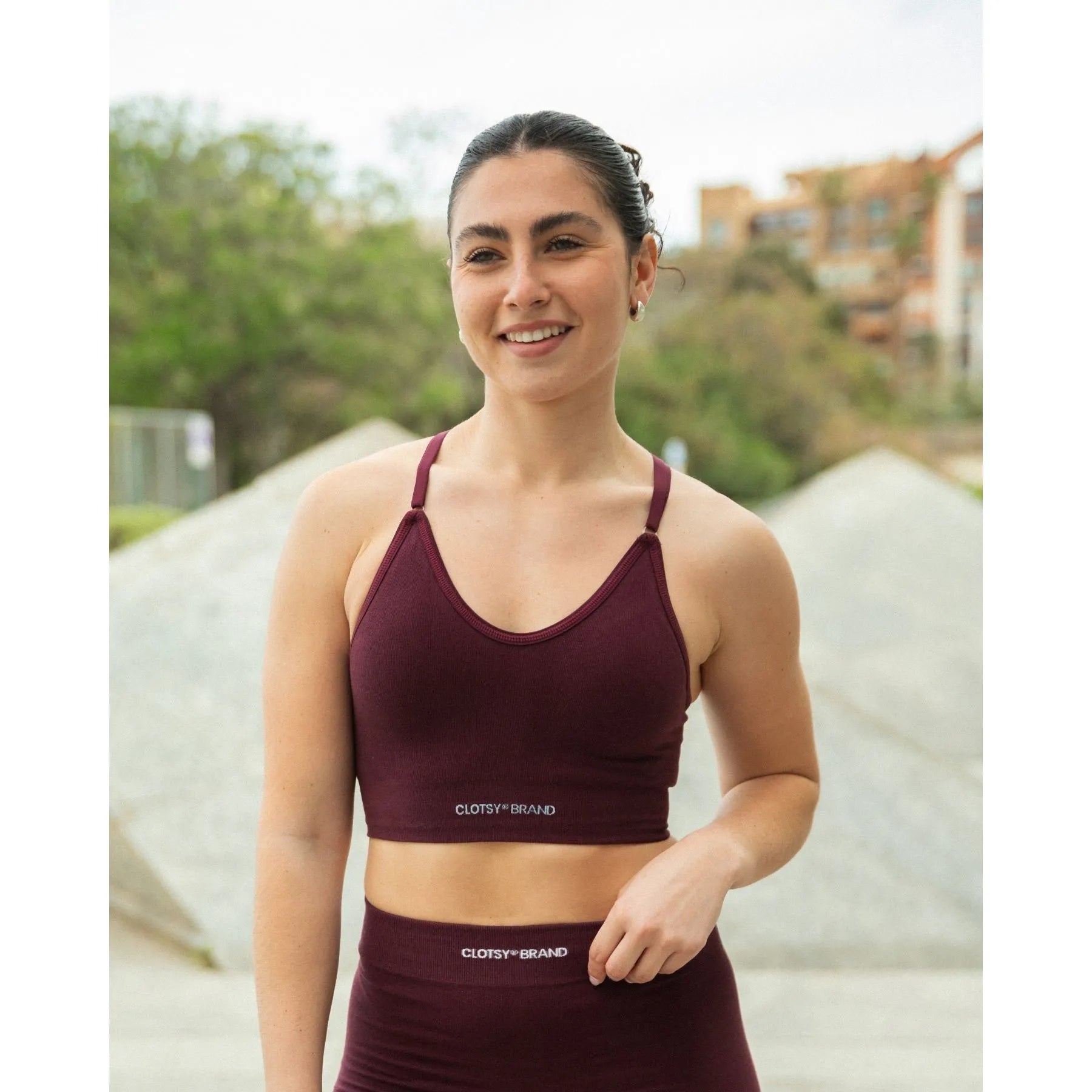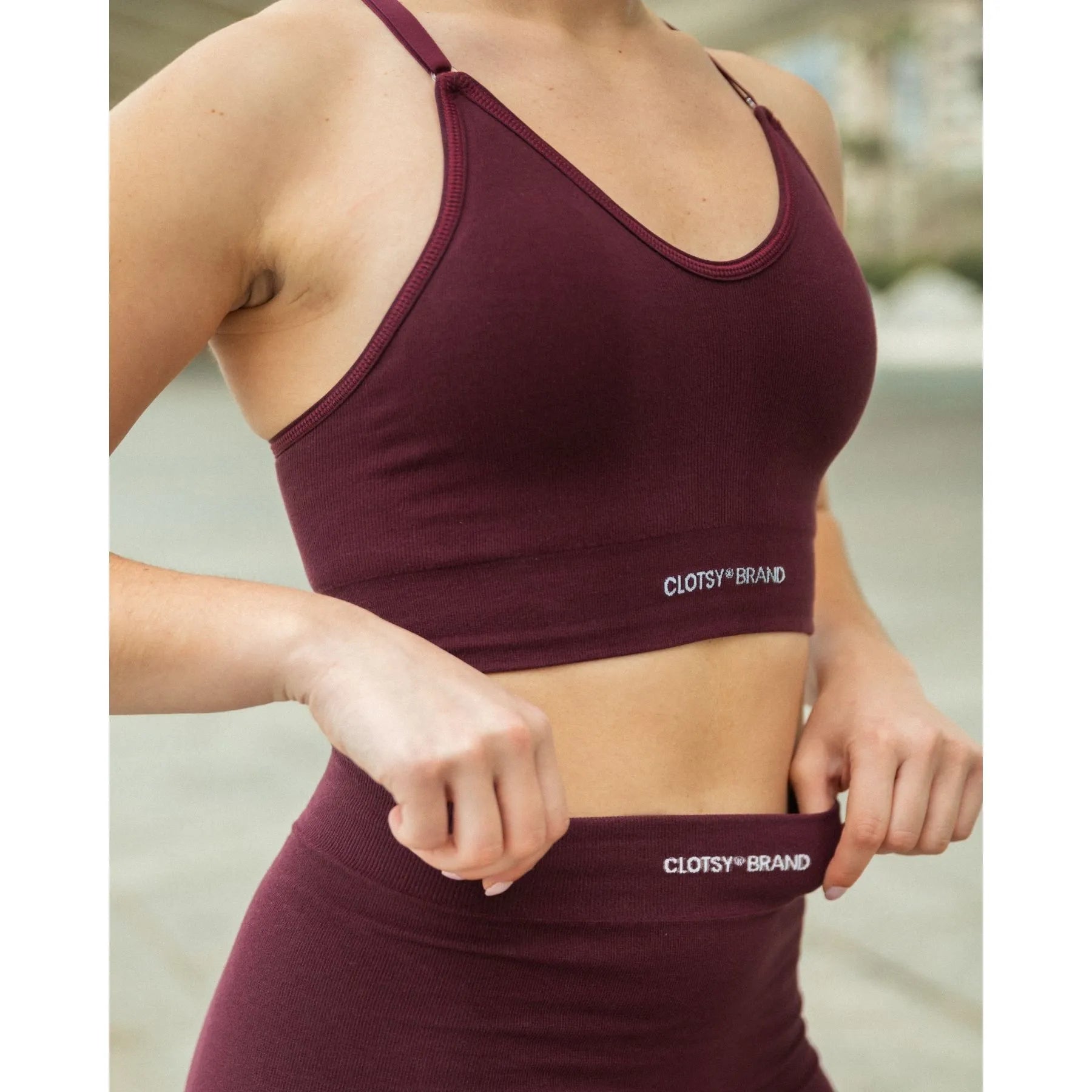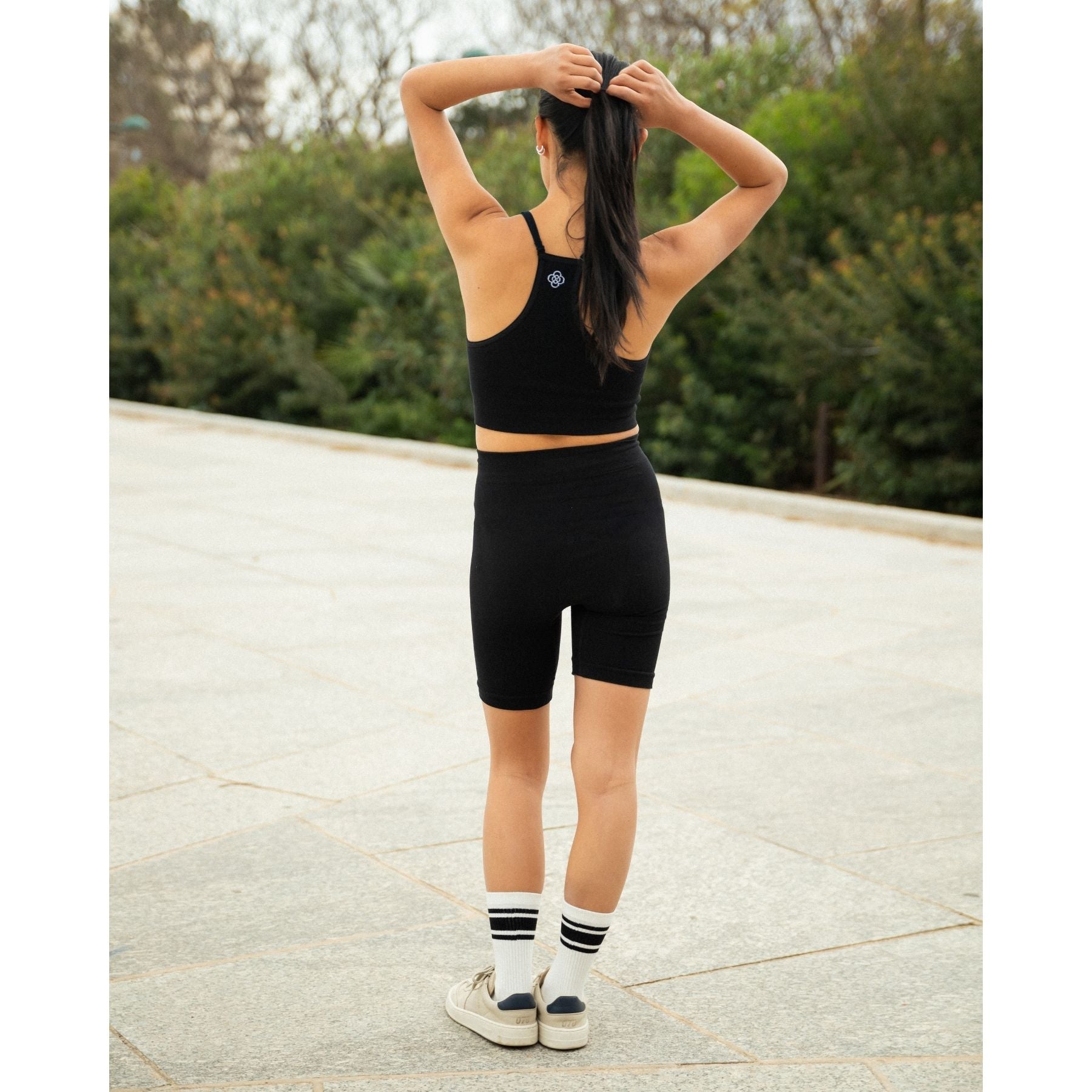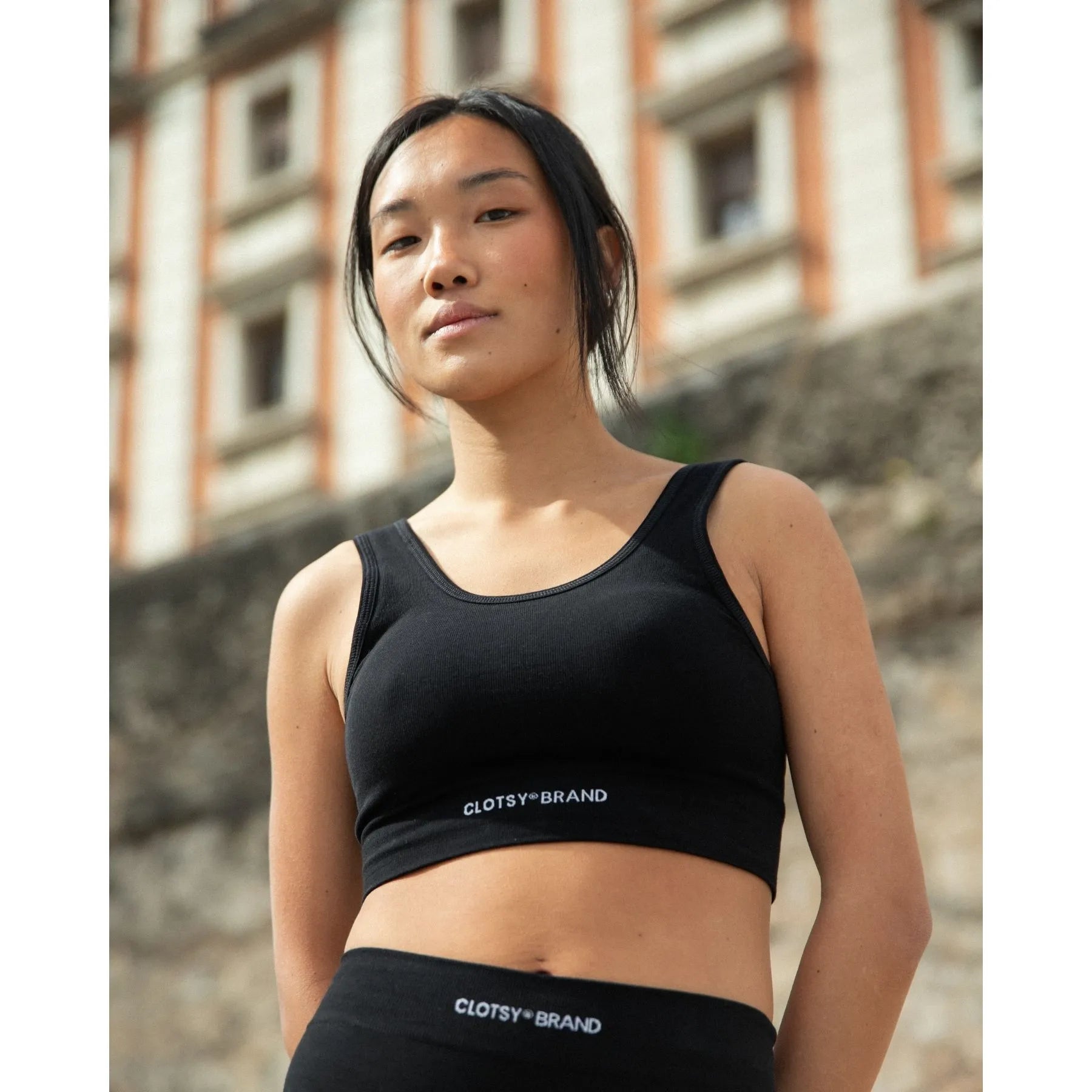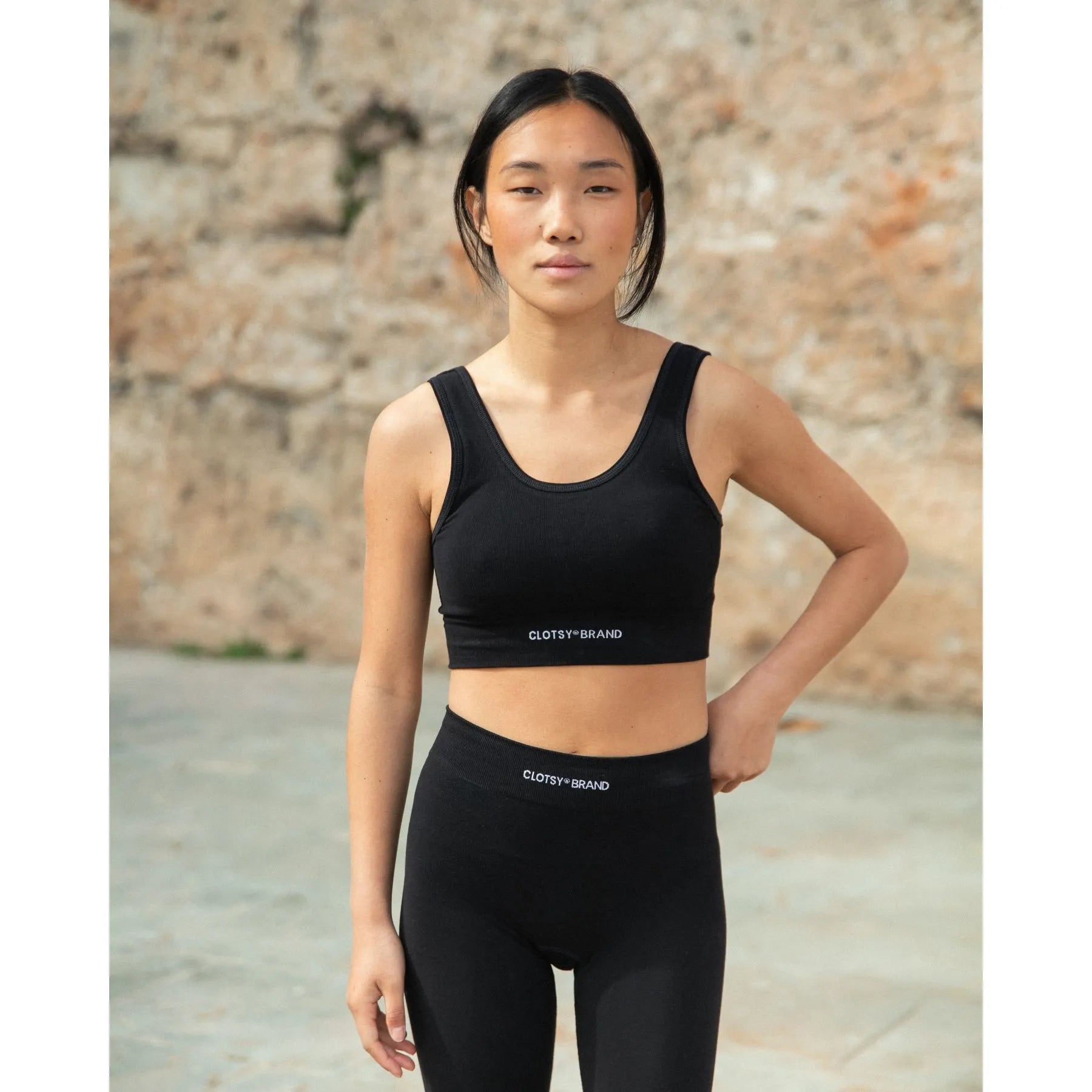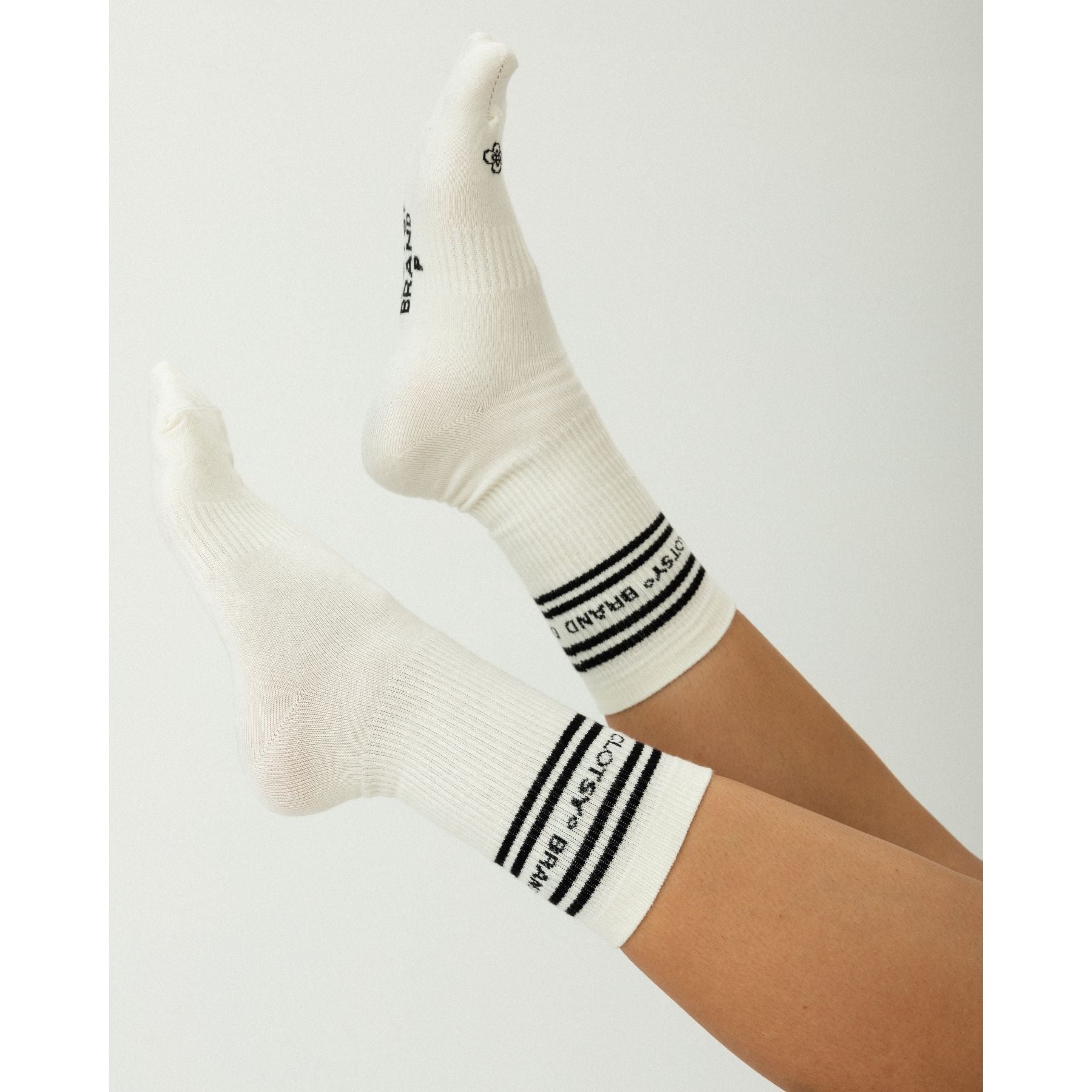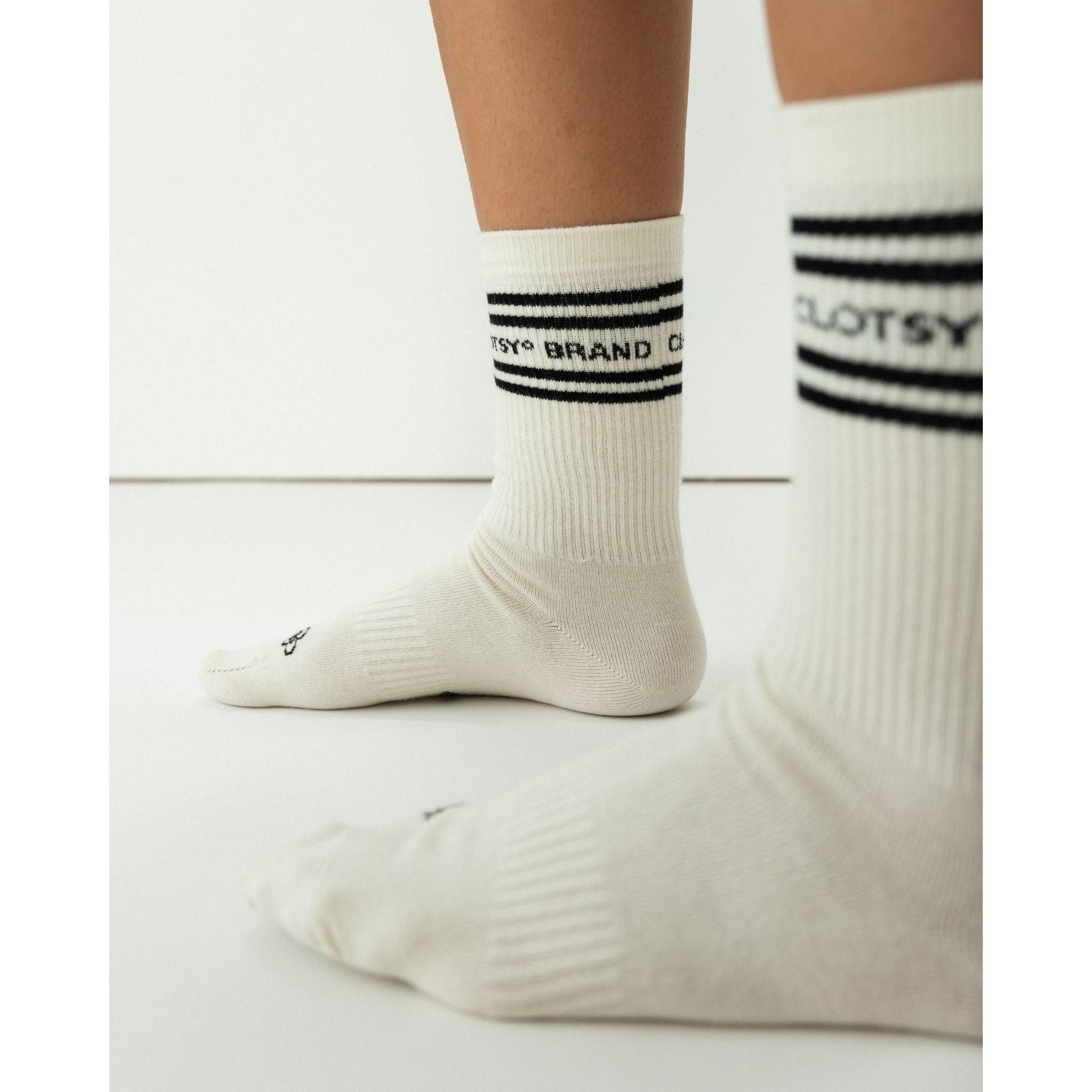Pair it with...
Shipping 48-72h
Free in the Peninsula from 60€
Local Production
In family workshops with quality fabrics.
FREE EXCHANGES
Keep the perfect garment.
Related Collections
FAQs Eco-Friendly Sportswear
What is eco-friendly sportswear?
Sustainable and eco-friendly clothing is basically clothing designed and produced with materials and processes that minimize environmental and social impact. It is manufactured using renewable, recycled, or organic resources, reducing water and energy consumption and carbon emissions. And for the most part, it also promotes ethical and responsible working conditions throughout the entire production chain.
What are its characteristics?
In the sportswear sector specifically, this type of clothing focuses on fabrics such as organic cotton, recycled polyester (from plastic bottles), and bamboo, which offer high performance without compromising the well-being of the planet. Thanks to its design and composition, sustainable clothing not only protects the environment but also improves our experience as consumers, ensuring comfort and durability. In short, we can say that the characteristics of sportswear are:
- Eco-friendly materials : Made with recycled, organic or biodegradable fabrics, such as organic cotton , bamboo or recycled polyester .
- Responsible production : Its manufacturing uses less water and energy, and is often done through processes free of toxic chemicals.
- Durability and quality : It is designed to withstand frequent use, thus avoiding waste and promoting more conscious consumption.
- Breathability and comfort : Its fabrics allow for better thermal regulation and sweat absorption, ideal for physical activity.
- Work ethic : Most come from factories that guarantee fair and safe working conditions for their employees.
What are the benefits?
Choosing to buy sustainable sportswear not only has environmental benefits, but also, as we've already mentioned, improves our consumer experience and encourages socially conscious consumption. We'll explain each of the benefits of sustainable and eco-friendly sportswear in detail:
REDUCING ECOLOGICAL IMPACT
Sustainable clothing is produced with recycled or biodegradable materials, which reduces waste generation and the resulting pollution. The use of recycled polyester, for example, reduces dependence on virgin plastic and prevents tons of bottles from ending up in landfills or the oceans. Furthermore, its production consumes less water and energy, significantly reducing the carbon footprint.
GREATER BREATHABILITY AND COMFORT THANKS TO NATURAL MATERIALS
Sustainable fabrics like organic cotton or bamboo have a distinctively soft texture and are free of harmful chemicals. In other words, they prevent skin irritation and provide a feeling of freshness and comfort while exercising. Since they don't contain pesticides or toxic dyes, they're ideal for children, those with sensitive skin, or those prone to allergies.
THERMAL REGULATION AND MOISTURE ABSORPTION
Almost all eco-friendly materials have natural properties that help maintain body temperature and efficiently absorb sweat. This helps keep your skin dry during your workout, preventing discomfort from moisture and often even unpleasant odors.
SUPPORT FOR BRANDS COMMITTED TO SUSTAINABILITY
By choosing eco-friendly activewear, you're contributing to the growth of brands that prioritize sustainability and ethics in their processes. In a way, you're sending a message. Many of these companies guarantee fair working conditions for their workers and promote responsible production models. It's a small gesture with a big impact on the fashion industry.
ECOLOGICAL AWARENESS AND SOCIAL CONSUMER RESPONSIBILITY
Every purchase is an opportunity to make more responsible choices. Choosing sustainable clothing fosters a more conscious lifestyle, where the well-being of the planet and people takes precedence over excessive and unnecessary consumption. Reducing textile waste and choosing quality products that last longer are necessary steps if we want to work toward a greener future.
STRENGTH AND DURABILITY
Sustainable garments are designed to last longer than conventional clothing. Because part of the idea behind producing these garments is to reduce waste, they are created with high-quality materials to prevent premature wear and tear after repeated washings. This means fewer unnecessary purchases and less textile waste.
FLEXIBILITY AND SPORTS PERFORMANCE
Despite its eco-friendly focus, sustainable clothing doesn't sacrifice functionality. Many garments are designed with stretch fabrics that allow complete freedom of movement, ideal for activities like yoga, running, or general gym workouts.
REDUCING EXPOSURE TO TOXIC CHEMICALS
They're the perfect option if you're easily irritated, have multiple allergies, or simply don't like the idea of wearing clothing that's been in contact with a lot of chemicals. The reality is that conventional activewear often contains pesticide residues, synthetic dyes, and other chemicals that often cause skin reactions.
How to identify sustainable sportswear?
Identifying sustainable and eco-friendly sportswear is quite simple because most brands make it clear on the label. However, the information on these labels isn't always reliable. Therefore, when choosing sustainable sportswear, it's important to also consider other aspects that guarantee its positive impact on the environment and health. To ensure you're truly buying eco-friendly clothing, keep the following factors in mind:
RECYCLED OR NATURAL MATERIALS
Sustainable sportswear is made with eco-friendly fabrics such as organic cotton, bamboo, Tencel, or recycled polyester (from recycled plastic bottles or fishing nets).
ECOLOGICAL CERTIFICATIONS
One of the surest ways to identify sustainable sportswear is through globally recognized certifications such as:
- GOTS (Global Organic Textile Standard): Guarantees that organic cotton has been grown without synthetic pesticides or fertilizers and that the manufacturing process meets strict environmental and social criteria.
- OEKO-TEX Standard 100: Certifies that the fabric does not contain substances harmful to health, ensuring that it is free of toxic chemicals.
- GRS (Global Recycled Standard): Validates that the recycled materials used in the garment come from verified sources and meet quality and sustainability standards.
- Fair Trade: Ensures that workers have received a fair wage and worked under ethical working conditions.
- PETA-Approved Vegan: Indicates that the garment does not contain materials of animal origin and has not been tested on animals.
GARMENT LABELS AND INFORMATION
Before purchasing, check clothing labels. Look for information about the materials used, the manufacturing process, and whether the brand mentions any ecological commitments. You can also research the company's website to learn more about its sustainable practices.
ETHICAL AND CIRCULAR PRODUCTION MODELS
Many of the brands that produce this type of clothing go beyond sustainable production and embrace circular models, where garments can be recycled at the end of their useful life. They also support initiatives such as upcycling (creative reuse of materials) or buyback programs to encourage more responsible consumption.














